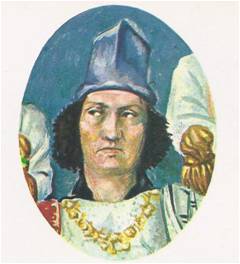There he sat in the great hall in the German city of Worms. His bright eyes and wide forehead gave him an air of distinction. You would not quickly forget that face. Before him was gathered an assembly of high ranking nobles and churchmen from many parts of Europe. For this man was Charles V, Emperor of the Holy Roman Empire, Archduke of Austria, ruler of the Netherlands and half of Italy, as well as King of Spain and master of Spain’s vast possessions in the New World. Yet Charles, who belonged to the famous Hapsburg family of Austria, was …
Read More »Tag Archives: Richelieu
The War Spreads 1625 -1648
THE BLOOD-LETTING in Germany aroused new ambitions in many of the kings of Europe. In Denmark and Sweden, the strong Protestant king: who were taming opposition at home began looking to Germany as a land ripe for conquest. Furthermore, in attacking Germany they were also attacking the hated power of Roman Catholicism. Quickest of all to act was Christian IV, king of Denmark. Christian did not doubt that he was equal to the task. At the age of five he had learned fencing and the use of firearms‚ waking at five each morning and practicing long hours. He became king …
Read More »France Becomes a Great Nation 1453-1631
WHEN MORE than a century of war between England and France ended in 1453, it was the French king, Charles VII, who was victorious. Although he had driven the English out of France, Charles found himself the king of a sad land. During the wars the great French nobles had fought among themselves as bitterly as they had fought the English and they had become so powerful that they no longer respected their king. France itself was devastated, the people poor and hungry. Paris had been half ruined. Wolves prowled the city by night and twenty-four thousand houses stood empty. …
Read More »

